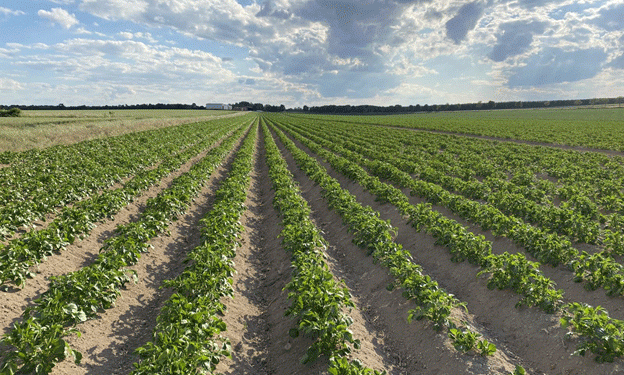Key Findings of the Study
The demand for potato products is soaring, and there is a growing need for sustainable farming practices. Netafim’s LCA study, conducted in collaboration with Potato Solutions and Drip UK, compared the environmental impacts of drip irrigation and rain gun irrigation systems for both fresh and processed potatoes. The results are compelling:
- Reduction in Global Warming Potential: Potatoes grown using drip irrigation showed a 54% reduction in GWP for fresh potatoes compared to those irrigated with rain guns. GWP, a measure adopted by the IPCC, assesses the heat-trapping potential of greenhouse gases relative to carbon dioxide.
- Water Conservation: For processing potatoes, drip irrigation required 40% less water per ton of potato than rain gun systems. This highlights the technology’s ability to conserve water, a critical resource in agriculture.
Expert Insights and Implications
Max Moldavsky, Director of Innovation and Climate Solutions at Orbia Netafim, emphasized the role of drip irrigation in combating climate change. “In the fight against climate change, drip irrigation technology emerges as a powerful ally, paving the way for a more sustainable agricultural landscape,” said Moldavsky. He underscored the urgent need for sustainable growing practices to meet environmental demands and protect the planet’s future.
Tim Kitson of Potato Solutions pointed out the adaptability and efficiency of drip irrigation, especially in water-scarce regions. “Even under ever-changing conditions and the looming threat of water scarcity, drip irrigation has shown remarkable reliability and resilience, ensuring water preservation and effective energy management,” Kitson noted.
Broader Implications for Sustainable Agriculture
This study reinforces Netafim’s commitment to promoting sustainable agriculture through innovative irrigation solutions. By reducing GWP and conserving water, drip irrigation not only benefits farmers but also contributes to global efforts to address climate change and resource scarcity. Precision irrigation technologies are crucial in achieving the goal of growing more with less, benefiting the environment and communities worldwide.
Netafim’s LCA study provides compelling evidence of the environmental benefits of drip irrigation for potato cultivation. As the agriculture sector faces increasing pressure to adopt sustainable practices, this technology offers a viable solution to reduce environmental impact while enhancing resource efficiency. The findings underscore the importance of continued innovation and investment in precision agriculture to ensure a sustainable future for farming.







